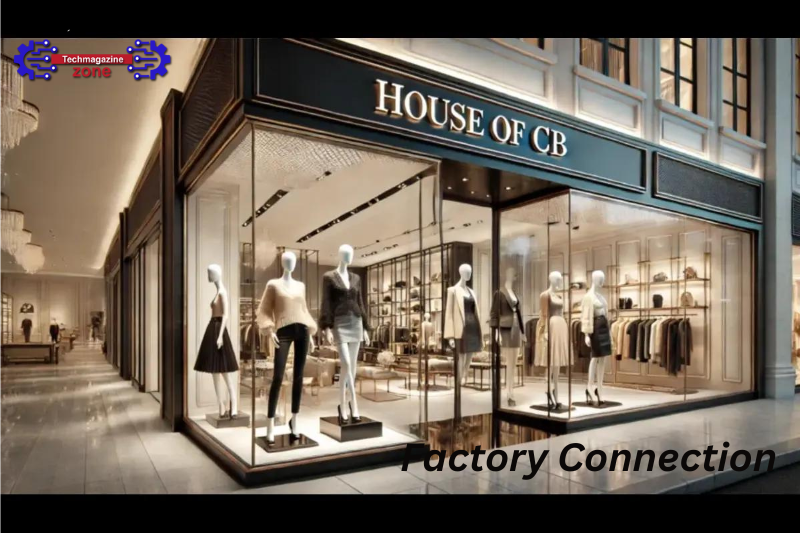Factory Connection is a well-known name in the American retail landscape, recognized for offering fashionable clothing and accessories at affordable prices. Established in 1976, the company has grown into a key player in the off-price retail industry, with hundreds of stores spread across various states in the southeastern and midwestern United States. This article delves into the history, business model, product offerings, and the reasons behind the continued success of Factory Connection. Additionally, we’ll explore how the brand has adapted to the changing retail environment, particularly in the age of e-commerce.
History of Factory Connection
Factory Connection was founded by Stephen M. Williams in 1976 in Guntersville, Alabama. The company began as a small store offering overstock items and factory seconds from popular brands at deeply discounted prices. Over the years, it expanded its footprint across multiple states and grew into a well-established regional chain.
From the start, Factory Connection aimed to offer customers quality apparel at affordable prices, filling a niche between high-end department stores and discount chains. This business model proved to be successful, allowing the company to thrive and grow throughout the 1980s and 1990s. By focusing on sourcing excess inventory from well-known manufacturers, Factory Connection provided its customers with the latest trends at prices significantly lower than those found at traditional retail stores.
The Factory Connection Business Model
Factory Connection operates within the off-price retail segment, meaning the brand focuses on selling excess stock, factory overruns, and discontinued items at discounted prices. This business model allows the company to offer customers brand-name clothing and accessories at up to 70% off regular retail prices.
The company sources its products from a variety of channels, including manufacturers, wholesalers, and department store chains. By purchasing large quantities of overstock or excess merchandise at a lower price, Factory Connection can pass these savings on to customers.
What sets Factory Connection apart from other off-price retailers is its regional focus and strong community ties. While competitors like T.J. Maxx or Marshalls operate on a national level, Factory Connection has concentrated its efforts on smaller towns and communities, where there is often less competition from larger chains.
Product Offerings at Factory Connection
Factory Connection offers a wide range of products, catering to men, women, and juniors. The store’s inventory includes clothing, shoes, and accessories from popular brands. Some of the most common items found at Factory Connection include:
- Women’s Apparel: Dresses, blouses, pants, skirts, and outerwear.
- Men’s Apparel: Casual and formal shirts, jeans, pants, jackets, and outerwear.
- Shoes: A variety of styles for both men and women, including casual, formal, and athletic footwear.
- Accessories: Handbags, scarves, belts, and jewelry.
In addition to brand-name items, Factory Connection also carries its own private-label clothing lines, offering customers even more affordable options without sacrificing style or quality.
Store Layout and Shopping Experience
Factory Connection stores are typically smaller than those of national retail chains, which allows for a more personalized shopping experience. The stores are clean, well-organized, and designed for ease of shopping, with clearly marked sections for men’s, women’s, and junior’s clothing.
The shopping experience at Factory Connection is often described as friendly and relaxed. The company places a strong emphasis on customer service, with store associates trained to assist customers in finding exactly what they need. In smaller towns, Factory Connection stores often become community hubs, where customers can shop in a familiar environment with attentive staff who understand the local fashion preferences.
Adaptation to E-Commerce
As e-commerce has reshaped the retail industry, Factory Connection has also begun exploring online sales. Though the company has traditionally focused on brick-and-mortar stores, it recognizes the growing importance of having an online presence. The company now offers an online shopping option on its website, allowing customers to browse and purchase products from the comfort of their homes.
While the online store is still growing, Factory Connection remains committed to maintaining the same value and customer service standards that have defined its physical stores. The brand’s focus on regional communities means that its online platform is designed to complement, rather than replace, the in-store experience.
Factory Connection’s Presence and Expansion
Factory Connection operates more than 300 stores across 16 states, primarily in the southeastern and midwestern United States. States with a strong Factory Connection presence include Alabama, Mississippi, Tennessee, and Georgia. Despite its regional focus, Factory Connection has been able to successfully expand by targeting areas that larger retail chains may overlook, such as smaller towns and rural communities.
This regional focus has allowed Factory Connection to build a loyal customer base, particularly in areas where there are fewer retail options. The company’s ability to offer fashionable, affordable clothing in underserved markets has been a key factor in its growth and longevity.
Challenges and Opportunities in the Retail Industry
Like many retailers, Factory Connection faces several challenges in today’s fast-changing retail landscape. The rise of e-commerce giants like Amazon and the shift in consumer behavior toward online shopping have forced traditional retailers to adapt.
One of the primary challenges for Factory Connection is maintaining its competitive edge while expanding its digital presence. While the company has made strides in building an online store, it must continue to innovate and enhance the online shopping experience to stay competitive.
On the flip side, Factory Connection has a unique opportunity to capitalize on its regional focus. Many consumers in smaller towns still prefer shopping at physical stores, especially for clothing, where fit and feel are crucial factors. By offering a hybrid approach that combines the convenience of online shopping with the personalized experience of in-store service, Factory Connection can continue to serve these communities effectively.

Marketing Strategies
Factory Connection employs a combination of traditional and digital marketing strategies to reach its target audience. In smaller towns, word-of-mouth and local advertising (such as flyers and radio ads) have been particularly effective. The company also engages with its customers through social media platforms like Facebook and Instagram, showcasing new arrivals, sales events, and promotions.
In recent years, Factory Connection has invested in digital marketing efforts to attract a younger, tech-savvy audience. The brand frequently offers exclusive discounts and promotions to its social media followers, encouraging customer loyalty and repeat visits both in-store and online.
Why Customers Love Factory Connection
One of the primary reasons customers are drawn to Factory Connection is the unbeatable value it offers. Shoppers can find trendy, name-brand clothing at prices that are significantly lower than those at department stores or malls. The combination of high-quality merchandise and affordable pricing has made Factory Connection a favorite among budget-conscious shoppers.
Another key factor in the brand’s popularity is its commitment to customer service. Whether shopping in-store or online, customers can expect friendly, helpful service from the company’s staff. This personal touch sets Factory Connection apart from larger, more impersonal retail chains.
Conclusion
Factory Connection has carved out a unique space in the American retail market by focusing on affordable fashion and serving smaller communities. Its off-price retail model allows customers to enjoy brand-name clothing without breaking the bank, while the company’s emphasis on customer service and regional focus has helped it build a loyal customer base.
As the retail industry continues to evolve, Factory Connection faces both challenges and opportunities. By embracing e-commerce while staying true to its core values of affordability and community-focused service, the brand is well-positioned for continued success. Whether through its physical stores or online platform, Factory Connection will likely remain a go-to destination for fashion-forward, budget-conscious shoppers for years to come.
